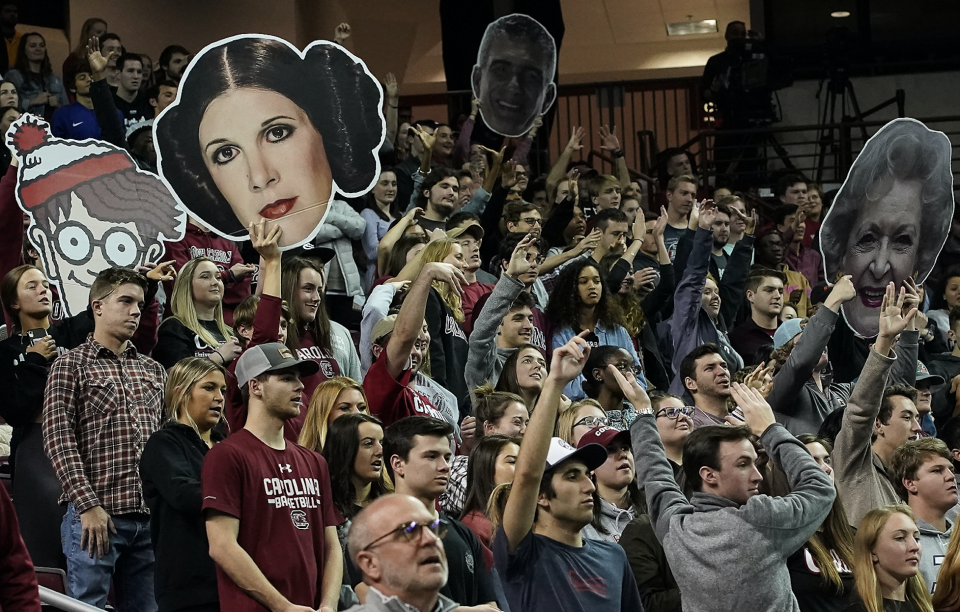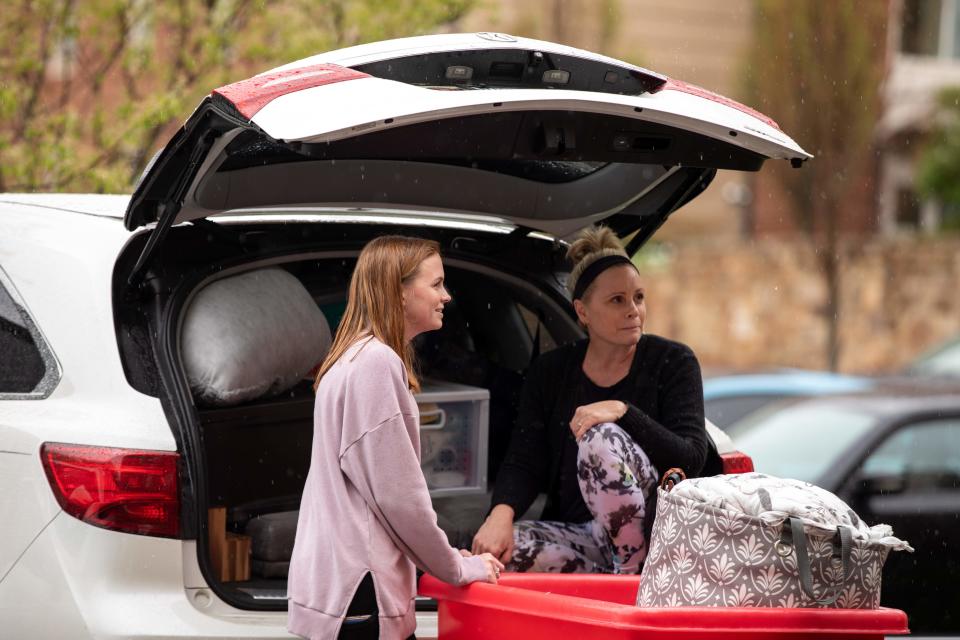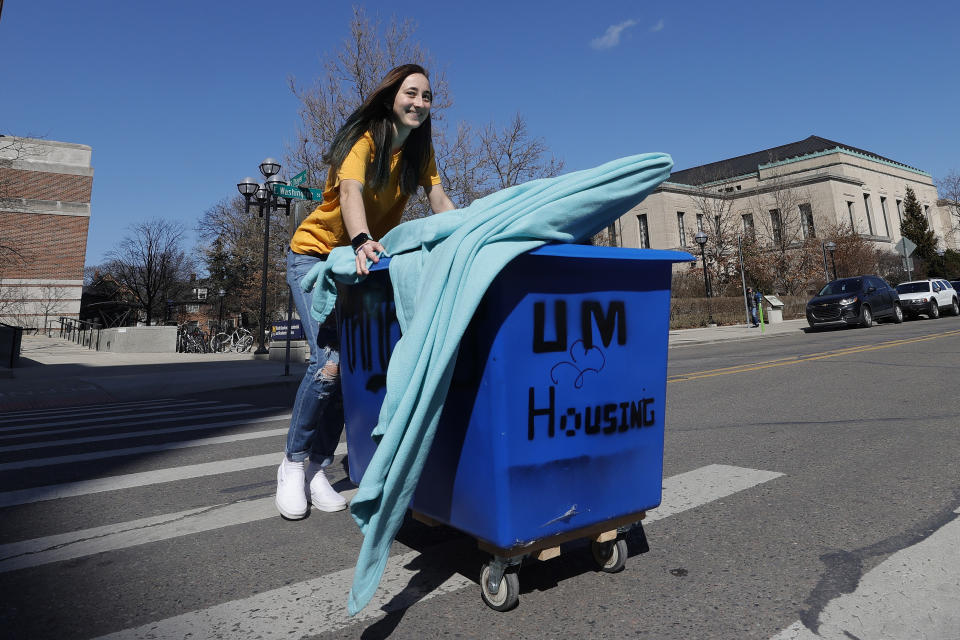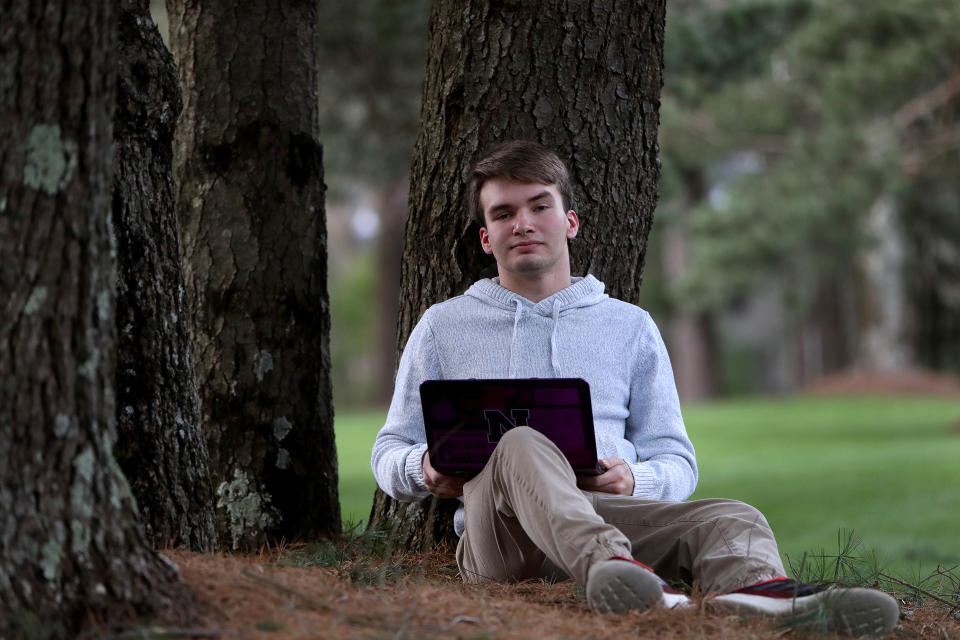What colleges need to consider before re-opening in the fall, according to experts
Some colleges are planning to reopen their campuses in the fall, taking a gamble on whether the coronavirus pandemic will allow that to happen safely.
In any case, experts are warning that colleges need to proceed with caution.
“Think of packed sports stadiums, think about college parties… [where] students are literally intermingling with each other in large numbers,” Josh Wyner, executive director at the Aspen Institute College Excellence Program, told Yahoo Finance. “And the whole idea of the residential experience… they’re gonna to have to have very clear plans for how they’re going to deal with it.”

Basic to-do list for schools and colleges
At a minimum, experts recommend that schools planning to reopen in the fall enforce policies including social distancing, testing, frequent hand washing, and the wearing of masks.
It doesn’t end there. Schedules would need to be completely revamped across the board, and “it may be necessary to reduce the number of students in school on a given day,” the Harvard Global Health Institute’s Dr. Ingrid Katz told Yahoo Finance, adding that options include alternating days or a half-day model.
For residential colleges, which have a “uniquely high risk of spread” due to students living and studying in close quarters, Katz noted, they’ll need to think about rapid testing, tracing, and isolation techniques in addition to updating their resources and technology to support the policies.
“No matter what, some social distancing measures will probably have to remain in place— like keeping large lectures online and banning parties/large gatherings,” Katz stressed.
An added issue involves courses that require hands-on work, such as lab or studio classes, where “it’s hard to put that online and engage students virtually,” Wyner said. “There have been some virtual mechanisms for teaching that have been created, but it can take years to develop those in normal circumstances.”

Shutting down ‘has come at extraordinary costs’
College leaders advocating for reopening their campuses — such as Brown University’s Christina Paxson — worry about a looming crisis in higher education if colleges and universities do not reopen their campuses in the fall.
“Closing down our entire society, including our university, was a correct and necessary step. It has had invaluable results,” Purdue President Mitch Daniels wrote recently. “But like any action so drastic, it has come at extraordinary costs, as much human as economic, and at some point, clearly before next fall, those will begin to vastly outweigh the benefits of its continuance. Interrupting and postponing the education of tomorrow’s leaders for another entire semester or year, is one of many such costs.”
Colleges are already starting to feel economic pain from the closures.
The University of Michigan has estimated that it’s likely to lose up to $1 billion by the end of this year. State officials in Vermont have proposed shutting down colleges entirely. Nonprofit colleges are begging the Federal Reserve for more funding to stay afloat.
“For residential colleges, a significant source of their income is in room and board, and if they can’t reopen physically… they will lose the revenue… and the expenses that they incur won’t all go away,” Wyner explained. “They still have to maintain the property they have… staff that they want to keep employed.”
To help support colleges and universities across the country, Congress, by way of the CARES Act, and the Education Department, threw them a lifeline: As of Friday, 2,710 grants were given out by the Education Department, totaling a little over $5 billion. An additional 2,064 applications were made by schools for the institutional portion of the funding.

‘And then we layer the COVID-19 crisis on top of that’
The other big question for colleges involves enrollment.
According to one recent survey of 1,000 U.S. teens by Junior Achievement USA and Citizens Bank, 44% of high school juniors and seniors said that the coronavirus had impacted their plans for college.
About 30% said they’ve had to delay their start date and 13% changed their mind on which school they were going to attend. And enrollment trends were grim even before the coronavirus pandemic.
“Many institutions entered this time period in a position of financial and enrollment or retention weakness... especially in the Great Lakes and the Northeast,” Nathan Grawe, professor of economics at Carleton College, told Yahoo Finance. “And then we layer the COVID-19 crisis on top of that.”

Grawe’s research, which looks into the birth rates and demographics to understand the demand for higher education, previously demonstrated that colleges should expect significant drops in enrollment.
In the face of enrollment headwinds, some colleges have turned to offering goodies to entice high school seniors to enroll. The University of St. Thomas in Houston, for example, is reportedly giving away a free semester of tuition for the first 100 students who enroll in its associates degree programs.
“I'm really sympathetic to admissions officers who are riding out all of this uncertainty as each week passes,” Grawe said. “The attitudes and experiences of prospective students are evolving in ways that are going to be very difficult to measure, until we see what the fallout is next fall, next year.”
—
Aarthi is a writer for Yahoo Finance covering consumer finance and higher education. She can be reached at [email protected]. Follow her on Twitter @aarthiswami.
Read more:
House Democrats unveil bill to cancel $30,000 in student debt per borrower amid coronavirus
Coronavirus student loan relief: Education Department says borrowers can ask for a payment pause
Read the latest financial and business news from Yahoo Finance
Follow Yahoo Finance on Twitter, Facebook, Instagram, Flipboard, SmartNews, LinkedIn, YouTube, and reddit.
